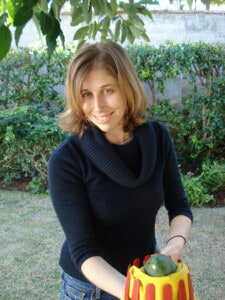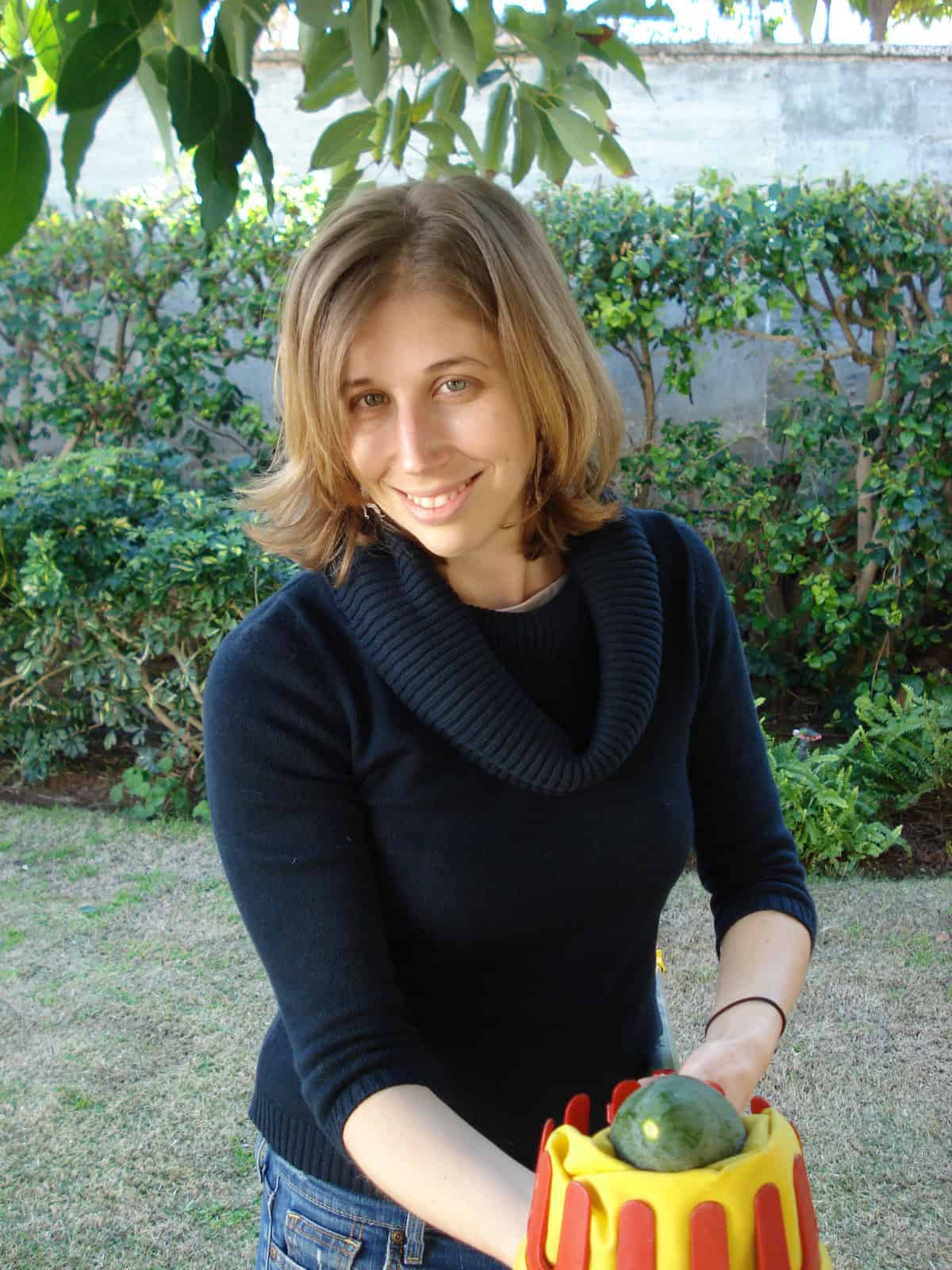 As hard as it is to believe, living in the north right along the border with Lebanon/ Hezbollah might be one of the safest places in Israel right now. The current “wave of terror” has not really affected my day-to-day life. There have been no attacks in my area, I don’t use public transport (many of the attacks happened on buses or at bus stops) or go to crowded public places like the local shuk. My husband and I work at educational institutions, which are gated and guarded all year. The only noticeable difference in my life is the guards at my college now check IDs of all who enter and the college has issued several emails with information about emergency protocol and where to buy pepper spray. I dread checking the news, since it feels like whenever I check there is another attack, even if I check every hour.
As hard as it is to believe, living in the north right along the border with Lebanon/ Hezbollah might be one of the safest places in Israel right now. The current “wave of terror” has not really affected my day-to-day life. There have been no attacks in my area, I don’t use public transport (many of the attacks happened on buses or at bus stops) or go to crowded public places like the local shuk. My husband and I work at educational institutions, which are gated and guarded all year. The only noticeable difference in my life is the guards at my college now check IDs of all who enter and the college has issued several emails with information about emergency protocol and where to buy pepper spray. I dread checking the news, since it feels like whenever I check there is another attack, even if I check every hour.
How is this wave of terror affecting the rest of the country? First of all, all you read in newspapers and see on TV is about the terrorist wave. For many people living in cities and not kibbutzim in the far north or south, there is fear of being out in public, especially in Jerusalem. According to news surveys, more people are fearful of being victims of terrorist attacks now than in previous security situations. Parks and playgrounds are empty due to this fear, even though the weather is perfect for being outside. More citizens carry pepper spray, knives, or other types of self-defense weapons. There have been calls for citizens to arm themselves. Every day there are various protests about the situation, in both Arab villages and Jewish cities. An intense hatred towards all Arabs has boiled over to new levels, with a mass fear and hysteria against Arabs. Many service companies, such as the telephone company, receive numerous requests not to send Arab technicians to homes. People eye construction sites warily, since the majority of construction workers in Israel come from the Arab sector. There have even been incidents of lynch mobs forming against innocent, peace abiding Arabs or Arab-looking men, which have resulted in the death of an innocent refugee from Eritrea.
So, how is this different than previous waves of terror or Intifadas?
People around the world might look at the news of the new “wave of terror” in Israel as the continuation of previous conflicts. They’ll read the causality score card (mostly Palestinians killed, a few Israelis injured), roll their eyes and think “Israel had it coming for keeping the Palestinians from having their own state” and then move on.
Unfortunately, this interpretation ignores some very fundamental differences to previous Israeli-Palestinian conflicts.
This round of terror is from the streets, unorganized and indiv idually-init iated. The weapons of choice are not rockets, bombs or guns, but rocks and knives. It is not run by a central terrorist group forming terrorist cells and planning attacks. It is inflamed and encouraged by Palestinian political and religious leaders, Palestinian and Arab news and especially social media. At least according to the reports in the Israeli news, Palestinian social media is full of instructional videos on how to stab Israelis and other pro-terrorist propaganda. The message the Palestinian public is receiving is one of blatant all-out hatred towards Jews and hero worship for those who commit these terrorist attacks.
Even more importantly, the core motivation of this wave of terror isn’t the never ending despair felt by Palestinians due to the continual cycle of poverty caused by the lack of progress towards a two-state solution and the increasing amounts of Jewish settlements in the terrorists. This conflict is based on the Palestinian belief that Israel will soon implement new policies towards the Temple Mount and Al-Aqsa Mosque denying Muslims access to the Al-Aqsa Mosque, while allowing Jews to pray on the Temple Mount.
For a bit of background, since the unification of Jerusalem in 1967 in the Six Day War, the status quo for the Temple Mount and Al-Aqsa Mosque has been one of full religious access for Muslims, with occasional restrictions on age due to security situations. Jews have been allowed in small numbers to tour the Temple Mount area, but never allowed to come near to or enter Al-Aqsa Mosque and NEVER allowed to openly pray. There is no intention by the Israeli government to change these policies, despite pressure by Jewish far-right religious groups. Netanyahu, since the beginning of this conflict, has denied access to the Temple Mount to all Knesset members, both Jewish and Arab, to prevent further escalation and has never fully denied access to the Muslim public, only occasionally to men been the ages of 18-40 for security reasons.
From what I can understand, the firm belief of the Palestinians that Israel wants to take over the Temple Mount and Al-Asqa Mosque is completely unfounded and false. Yet this has motivated dozens of young boys and young adults, mainly from East Jerusalem, to pick up their knives and go to battle.
The reality of this situation has fallen on deaf ears on the international community. The flagrant biased reporting of the situation in the international news media is unbelievable and unjustifiable. When respected news companies, such as CNN and the BBC, report on Israeli police killing a Palestinian without mentioning that he was in the middle of committing a stabbing attack, I feel that Israel stands alone. It feels like the world is in complete denial of the situation and can’t admit that their star victim may also been to blame. I know and understand that Israel is not perfect either in her handling of every terrorist attack, but the one-sided international media is unacceptable.
I hope that the Jewish community in America can work together with Israel to publicize Israel’s side of the story and demand a more fair and even-handed reporting from the major news sources and just relations and support from the international leadership and community.
I also hope that soon the news will be full of reports about the upcoming rain and other more mundane stories so that life can return to normal for the country.
by Liz Dovrat
—Liz Dovrat is an American-Israeli living with her Israeli-born husband Lior in Kibbutz Manara, a kibbutz in the northern tip of Israel on the border with Lebanon. She works as an English teacher at Tel Hai Academic College. Dovrat spent most of her childhood summers in Virginia Beach, where her parents, Noel and Barbara Dudley now reside.

